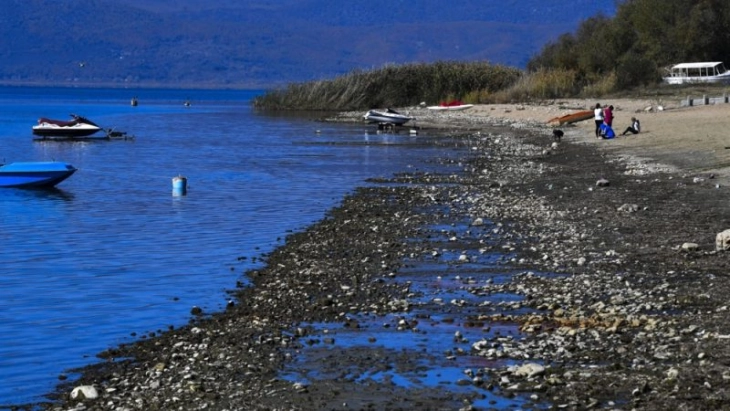NASA: Lake Prespa has lost 7 percent of its surface area between 1984 and 2020
- Lake Prespa, which has a surface area of around 260 square kilometres, more than twice the size of Paris, has lost 7 percent of its surface area and half of its volume between 1984 and 2020, writes “Euractiv”, citing a NASA report.

Brussels, 14 September 2023 (MIA) – Lake Prespa, which has a surface area of around 260 square kilometres, more than twice the size of Paris, has lost 7 percent of its surface area and half of its volume between 1984 and 2020, writes “Euractiv”, citing a NASA report.
Noting that more than two thirds of the lake belongs to North Macedonia and the rest to Greece and Albania, the website writes that Prespa is one of Europe’s oldest lakes and home to more than 2,000 species of fish, birds, mammals and plants.
Local fisherman Vancho Vasilevski told “Euractiv” that his boat frequently runs aground, adding that in the last two to three months the water has dropped 36 centimetres “and in last days probably another two or three centimetres.”
“It will go down more. There is no rain, no winter, no snow, no rivers. Only one river is coming into the lake… This is a disaster, a natural disaster,” adds Vasilevski.
The article notes that the water at Lake Prespa is now more than 8 metres lower than in the late 1970s, adding that the United Nations Development Program (UNDP) “has warned some wildlife species at the lake are at risk of extinction because of the destruction of their habitat through harmful farming practices, erosion, untreated waste and waste waters.”
“Any drop in water level can affect Lake Ohrid, a much larger lake just 10 km from Prespa and which draws around one third of its water from Prespa. Environmentalists have said lack of rain, evaporation and overuse of water for irrigation by all three countries are the main reasons for the water loss,” adds Euractiv.
Biologist Dragan Arsovski from the Macedonian Geological Society, told Euractiv that the level of the lake has risen and fallen over the centuries and nature has survived, but today people are failing to adapt and take action.
“There are some things when it comes to global climate change that we simply cannot change and we need to adapt to what is to come. Some things perhaps we can change, like our everyday habits,” Arsovski told Euractiv.
Photo: EPA







